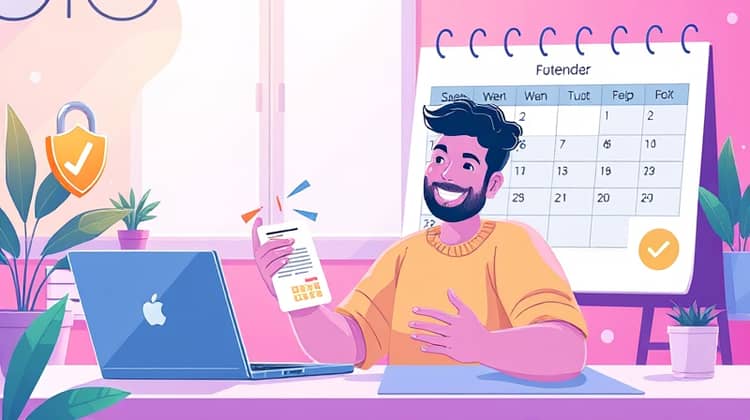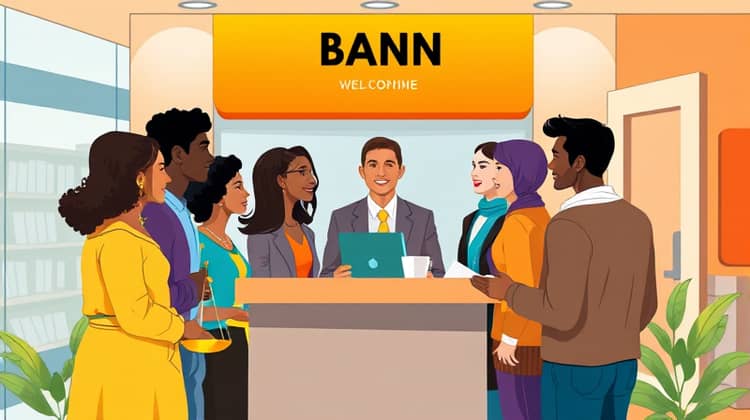Understanding Your Credit Card Rights: A Must-Read for Consumers

Credit cards have become an integral part of our financial lives, providing convenience and flexibility in making purchases. However, many consumers are often unaware of their rights regarding credit card usage, leading to potential exploitation and unfair treatment by credit card companies. This article aims to outline essential credit card rights that consumers should be aware of to protect themselves effectively.
Understanding these rights is not only beneficial for better financial management but also empowers consumers to challenge any unjust practices from issuers. Whether you're a first-time credit card holder or a seasoned user, having a solid grasp of your rights can lead to more favorable financial outcomes and improved confidence in using credit responsibly.
Join us as we explore these rights in detail, ensuring you're equipped to handle various situations that may arise with credit card use. This knowledge will be crucial for navigating the often complex world of credit card agreements and transactions.
1. Overview of Credit Card Rights

Credit card rights are crucial legal protections that consumers have in relation to their credit cards. These rights aim to foster fair treatment, transparency, and accountability between cardholders and credit card issuers. By knowing and understanding these rights, consumers can make informed financial decisions and avoid pitfalls associated with credit card usage.
The Credit Card Accountability Responsibility and Disclosure (CARD) Act of 2009 significantly strengthened consumer rights in the credit card industry, introducing provisions that protect consumers from unfair practices. This federal law establishes clear guidelines for credit card companies, ensuring transparency in fees, interest rates, and billing practices.
Awareness of your credit card rights can help you manage your debt, avoid excessive charges, and ensure you're treated fairly by your credit card company. Knowing these rights provides a sturdy foundation for building a positive credit history and protecting your financial future.
2. Right to Dispute Charges

One of the most critical rights consumers possess is the ability to dispute charges on their credit card accounts. This right allows cardholders to challenge unauthorized transactions, billing errors, and goods or services not delivered as promised. Recognizing your right to dispute is essential for safeguarding yourself against fraudulent activities.
To exercise this right, consumers must act swiftly, as there are usually time limits involved. Typically, cardholders have up to 60 days from the date a bill is sent to dispute a charge, providing they inform their credit card issuer. Failure to do this in time could result in the consumer being responsible for the disputed amount.
Credit card companies are required by law to investigate disputes promptly and fairly. During this process, the issuer must provide evidence that the charge was valid. If they cannot, the disputed charge must be removed. This right ensures that consumers are protected from unjust charges and can dispute erroneous fees confidently.
- Consumers have up to 60 days to dispute charges after receiving their billing statement.
- Credit card issuers must investigate and respond to disputes promptly.
- Proper documentation is essential when disputing a charge. Consumers should keep records of transactions and communications.
Disputing charges can be done either through a written letter or by calling your credit card company’s customer service. Make sure to document the process and follow up if you do not receive a resolution in a timely manner.
3. Right to Transparent Terms

It is the right of every credit card holder to receive clear and transparent terms regarding their credit card’s use and fees. This includes information about interest rates, annual fees, grace periods, and penalty charges. A transparent understanding of these factors is crucial for managing your credit effectively.
Credit card companies must disclose terms in an understandable format, making it easier for consumers to compare different cards and choose those that align with their financial goals. This requirement not only helps consumers make educated choices but also promotes fair competition among card issuers.
- All fees should be disclosed clearly before card issuance.
- Creditors must provide a summary of key contract terms including interest rates and fees.
- Consumers should receive notice about changes to terms in advance.
If you notice that your credit card issuer alters terms that you did not agree to, contact them immediately for clarification. Being informed gives you leverage and helps you avoid unexpected charges.
4. Right to Cancel

Consumers have the right to cancel their credit card account at any time without facing an unfair penalty. This provides flexibility for consumers who may find themselves in challenging financial situations or discover that a particular card does not suit their needs.
To cancel a credit card effectively, it is important to follow the issuer's procedures, which typically includes paying off any remaining balance and notifying the company of your decision. While canceling can impact your credit score, it is a necessary step for some consumers seeking to regain control over their finances.
5. Protections Against Fraud

Credit cardholders are protected against fraudulent activities, which means consumers won't be held responsible for unauthorized charges, given that they report the issue in a timely manner. Most credit card companies offer zero liability for fraudulent transactions, but this can vary among issuers.
To benefit from these protections, consumers should regularly monitor their account statements and credit reports. Identifying any discrepancies early can limit potential losses and expedite resolution processes.
- Consumers are typically only liable for up to $50 of unauthorized charges if reported in a timely manner.
- Many credit card companies offer zero liability policies for fraud.
- Regularly reviewing your account statements can help identify unauthorized charges early.
While fraud protections are an essential right, it is still the responsibility of consumers to be proactive in securing their accounts. By using alerts, strong passwords, and secure payment methods, cardholders can significantly reduce their risk of fraud.
6. Limitations on Interest and Fees

Credit card rights include limitations on interest rates and various fees that issuers can charge, which protect consumers from excessive financial burdens. The CARD Act established rules preventing issuers from raising interest rates without justification and barring retroactive rate increases.
Furthermore, if a cardholder misses a payment, the issuer cannot impose excessive fees or penalties unless previously stated. This helps consumers manage their accounts without being subjected to unreasonable charges.
- Interest rates cannot be raised without notice or reason.
- Late fees must be reasonable and in line with current laws.
- Creditors must provide billing statements at least 21 days before payment due dates.
Understanding these limitations empowers consumers to challenge unjust fees and aids in responsible credit card usage, ensuring that individuals remain financially healthy.
7. Equal Credit Opportunity

The Equal Credit Opportunity Act (ECOA) protects consumers from discrimination based on race, sex, age, marital status, or religion when applying for credit. This law ensures that everyone has equal access to credit opportunities, promoting fairness in lending practices. Creditors are required to assess all applications based on merit rather than personal characteristics, contributing to a more equitable financial landscape.
If consumers believe they have been discriminated against during the credit application process, they have the right to seek legal action against the creditor. It's crucial for consumers to know they are entitled to fair treatment and impartial evaluation regarding their creditworthiness.
8. How to Exercise Your Credit Card Rights

Exercising your credit card rights can be straightforward if you know how to approach it. Start by reading your credit card agreement thoroughly to ensure you understand your rights and responsibilities as a cardholder. Keeping communication lines open with your issuer can also facilitate the process when issues arise.
In situations of discrepancies or disputes, act swiftly by documenting all communications and following the steps provided by your card issuer for addressing interruptions. Stay persistent and don't hesitate to escalate issues if they remain unresolved.
- Familiarize yourself with the terms of your credit card agreement.
- Keep records of all communications with your card issuer.
- If necessary, file a complaint with the Consumer Financial Protection Bureau if you believe your rights have been violated.
By actively knowing and exercising these rights, you can navigate the credit card landscape with confidence, shielding yourself from unfair practices.
9. Resources for More Information

For consumers looking to understand their credit card rights better, various resources are available. The Consumer Financial Protection Bureau (CFPB) provides valuable information and guidance on credit card agreements, rights, and responsibilities, serving as a trusted source for financial education.
Additionally, various nonprofit organizations offer financial counseling and education about credit management, empowering consumers to make informed choices about their finances.
- Consumer Financial Protection Bureau (CFPB) resources
- National Foundation for Credit Counseling (NFCC)
- Federal Trade Commission (FTC) information on credit cards
Utilizing these resources can further enhance your understanding of credit card rights and responsible financial practices.
Conclusion

Understanding your credit card rights is an essential step toward financial literacy and responsibility. By being informed, you can protect yourself from unfair treatment, manage your finances more effectively, and navigate the complexities of credit card usage confidently.
Always remember that your rights are designed to support and empower you as a consumer. Taking the time to familiarize yourself with these rights can lead to a more positive credit experience and a more secure financial future.






